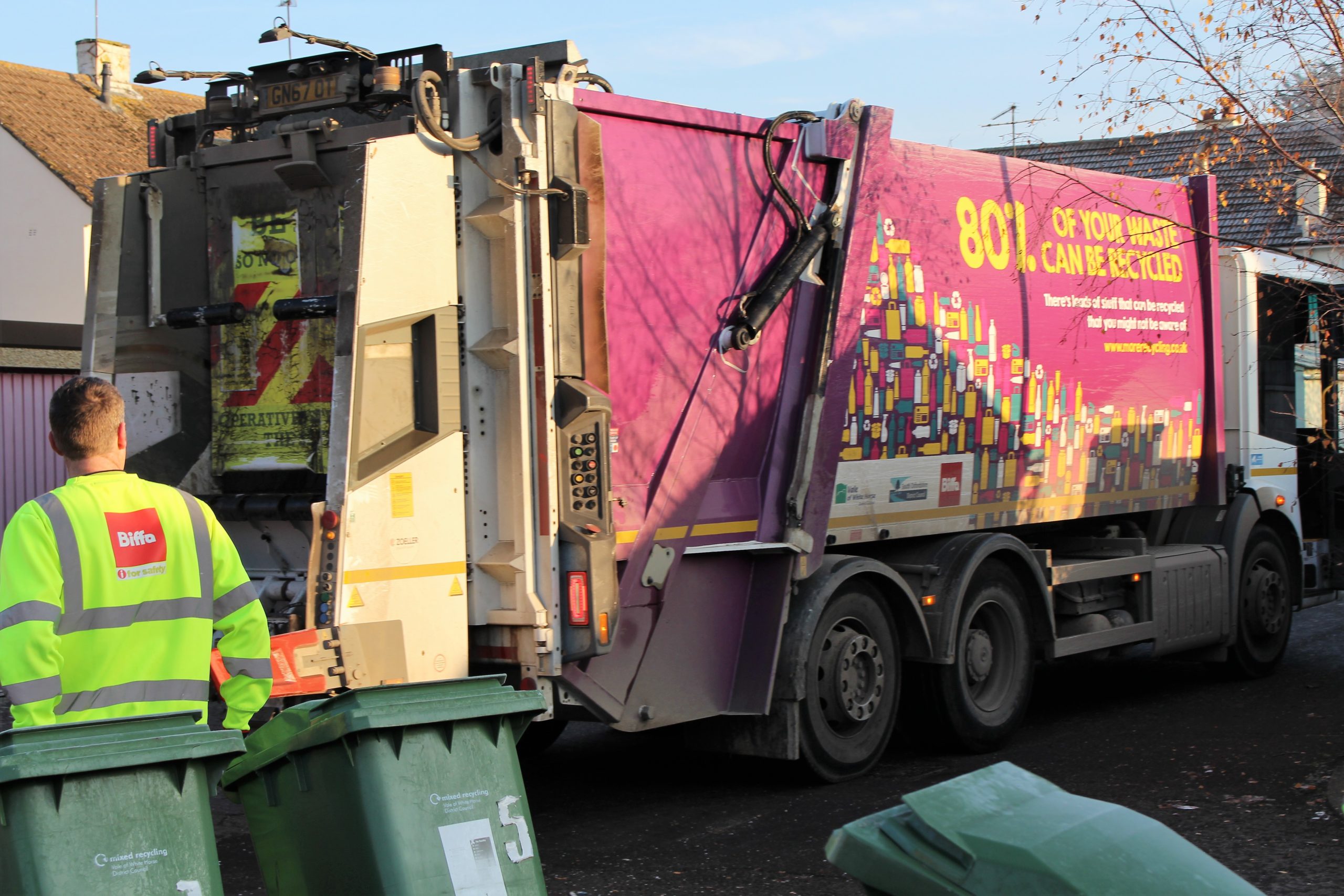
Changes to some waste collections in South Oxfordshire and Vale of White Horse
From 10 October there will be changes to some waste collection routes in South Oxfordshire and Vale of the White Horse to make them more efficient and environmentally friendly.
It will mean changes for less than 20 per cent of residents (approx. 20,000) across the districts.
Biffa has written to all householders whose collections will be altered with specific details of how the changes will affect them. These letters should have arrived by the end of September.
Affected households will have one of the following:
- a different bin day
- a week change – where rubbish and recycling weeks will swap but the actual bin day remains the same*
- a new bin day and a week change*
- Approx. 700 residents in the South Oxfordshire areas of Henley and Bix will have their food waste collected on a different day of the week to their main collections. This is an area where garden waste is already collected on a different day to the other bins and so these residents will have their food waste collections on the same day as their garden waste collections (if they’re a subscriber).
*People with week changes will receive new calendars with their letter.
The councils have set up dedicated web pages containing more information about the changes with an online look-up function for people to type in their post code to find out if their collection details will be changing and if so, how it will affect them.
www.southoxon.gov.uk/collectionchanges
Cllr Sue Cooper, South Oxfordshire District Council Cabinet Member for Environment, Climate Change and Nature Recovery said: “Our waste contractor, Biffa, has written letters to all those affected explaining how their waste collections will be changed. The vast majority – 80 per cent – of residents are not affected so won’t have received a letter. But we have a look-up function on our websites for people to check.”
Councillor Sally Povolotsky, Vale of White Horse District Council Cabinet Member for Climate Emergency and Environment said: “Since the collection routes were first planned more than ten years ago, new homes have been built, with more people choosing to move to our districts.
“This has meant collection routes are much busier in areas with new houses. More homes equal more waste. This has meant the bin lorries fill up quickly on some rounds which has meant more trips to the waste depot on some routes than on others. By planning new collection routes, we can make them more efficient and use less fuel.”

